Q : Write a program to count the number of occurrences of any two vowels in succession in a line of text. For example the following sentence :
"Please read the application and give me gratuity"
Such occurrences in the sentence are :- "ea" , "ea" , "io" , "ui". Ultimately the question is to count the number of such occerrences in the line which is a user input string.
Problem : My program is just recieve a line but did not give any output.
It's my first question in stackoverflow. I am a beginner in programming.
My code:
# include <stdio.h>
int main () {
char line[100];
printf("\nEnter a line\n");
gets(line);
//printf("You entered : %s\n", line);
char A,E,I,O,U,a,e,J,o,u;
A = 'A';
E = 'E';
I = 'I';
O = 'O';
U = 'U';
a = 'a';
e = 'e';
J = 'i';
o = 'o';
u = 'u';
int occurence =0,i =0 ;
while (line[i] =! '\0'){
if((line[i] == A || E || I || O || U || a || e || J || o || u) && (line[i+1] == a || e || J || o || u)){
occurence++;
}
i++;
}
printf("Number of occurence of any two vowels in succession in the line is : %d\n", occurence);
return 0;
}
